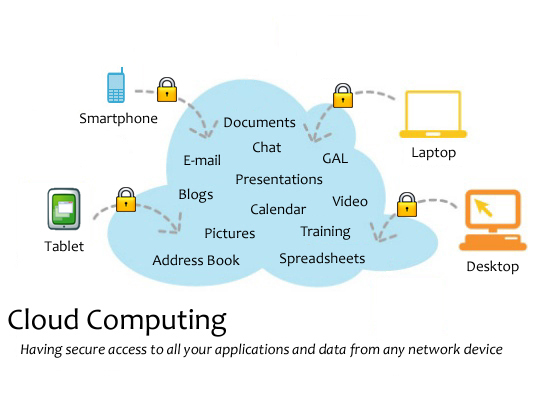July 11th, 2011 by Michael Kirsch, M.D. in Health Policy, Opinion
2 Comments »

I spent the entire last weekend with an attorney, not a desirable circumstance for most physicians. However, I wasn’t being deposed or interrogated on cross examination. This was a rendezvous that we both sought with enthusiasm.
Lewis is my closest friend, a bond that was forged since we were eight years old. We are separated now only by geography, and we meet periodically because we both treasure the friendship. Earlier this year we rolled the dice in Vegas. Last weekend, we sweated in the sweltering heat of the Mile High City. Next stop? Back to Denver with a few youngins’!
Lewis is the managing partner in a prominent west coast law firm that specializes in tax evasion. (Or is it tax avoidance? Am I confusing my terms here, Lew?) He has been redrafted to this position because he has earned the respect of his colleagues. Clearly, both Lewis and I have ascended to the highest strata of our professions. Lewis is in charge of a large law firm that has global reach; he travels all over the world cultivating business and negotiating deals; and he navigates clients through complex and labyrinthine legal conundrums. I, an esteemed community gastroenterologist, perform daily rectal examinations and counsel patients on flatulence.
I am sure that readers will agree that our future professional prestige is already evident in this photo of us taken several decades ago. Read more »
*This blog post was originally published at MD Whistleblower*
May 30th, 2011 by Stanley Feld, M.D. in Health Policy, Opinion
1 Comment »

The development and use of an electronic medical record is extremely important for communication, rapid diagnosis and clinical decision making, increasing efficiency in working up patients, decreasing the cost of duplication of testing and time delays in medical care and treatment.
There are many other advantages of using a functional electronic medical records. A person could be anywhere in the world and have his medical information immediately available. The results of all testing should immediately be communicated to the treating physician. All imaging studies should be digital.
Patients’ physicians could immediately read and use them for their clinical decision making.
These are only a few of the advantages of the electronic medical record. Read more »
*This blog post was originally published at Repairing the Healthcare System*
May 23rd, 2011 by DavedeBronkart in Health Policy, Opinion
4 Comments »

*Editor’s note: Dave would like readers to check out the comments section in the original post for his full views.*
A lot of people are intrigued with using “cloud” applications and storage for personal health data. This week we’re seeing what I think is the final nail in the coffin of “cloud only” for anything important. You gotta have offline backups: two huge cloud vendors – Amazon and now Google – have demonstrated that even they can go down, leaving their users absolutely powerless.

Cloud computing (Wikipedia) is hugely attractive to software developers and businesses. As shown in this diagram from Wikipedia, the idea is that you do your computing using storage or tools that are on some computer somewhere out there “in the cloud.” You don’t know or care where, because somebody out there takes care of things. As your business or database grows, “they” take care of it.
And it’s real – it works.
But when “they” screw up, you could be screwed.
Last month Amazon Web Services went down for a couple of days. PC Magazine posted a good summary, and many of us learned that well known companies like Hootsuite and Foursquare don’t actually own the computers that deliver their product: they rent services from Amazon Web Services (AWS). So when AWS went down, there was nothing they could do to help their customers. Read more »
*This blog post was originally published at e-Patients.net*
April 11th, 2011 by Lucy Hornstein, M.D. in Humor, True Stories
1 Comment »

Like many offices, we have a policy of calling patients to remind them of upcoming appointments, usually one to two days ahead of time. With the advent of our new EMR, we have the option of having the system send them email reminders. The vast majority of folks who’ve received these just love them. But there are still several patients a day who get phone calls.
The other recent change in the office, cutting the staff by 50%, means that my one remaining staffer is the one who makes the calls. She has other stuff to do, though — lots of other stuff, actually — so that she may not get around to these calls until later in the day.
Thank goodness our patients are right on the ball: Read more »
*This blog post was originally published at Musings of a Dinosaur*
April 10th, 2011 by Stanley Feld, M.D. in Health Policy, Opinion
No Comments »

President Obama’s has created an incentive program to encourage physicians to adopt functional Electronic Medical Records. The program’s $27 billion dollars (funded by President Obama’s Economic Stimulus package) will turn out to be a colossal failure and a waste of money.
Twenty seven billion dollars would provide $44,000 for 640,000 physicians. After the bureaucratic infrastructure is built the federal government will be lucky if one third of the money remains for bonuses to physicians.
Only 21,000 of 650,000 (3%) of physicians have applied to date.
Complex bureaucracies and complicated regulations never save money. These bureaucracies create bigger government, inconsistent policies, more complicated regulations and inefficiencies.
The best and cheapest way to create a universally accepted and functional EMR is for the federal government to put the software in the cloud and charge physicians by the click for the use of the Ideal Medical Record.
Upgrades in software to the Ideal Medical Record will be swift , inexpensive and instantly adopted. Read more »
*This blog post was originally published at Repairing the Healthcare System*

















